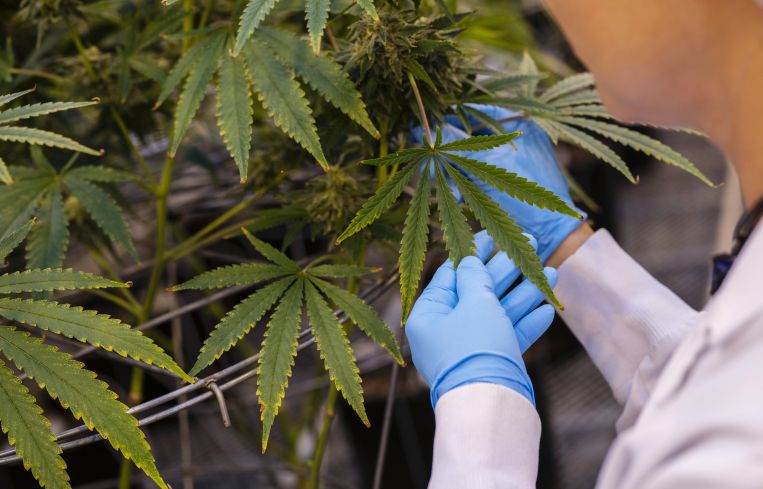New Yorkers With Past Cannabis Convictions to Get First Marijuana Sales Licenses
By Celia Young March 10, 2022 6:53 pm
reprints
New York’s first retailers of recreational cannabis will be people who previously have been convicted of a marijuana-related offense, Gov. Kathy Hochul announced on Thursday.
The policy is part of the state’s slow-going effort to legalize a billion-dollar cannabis industry while ensuring that those most harmed by the nation’s war on drugs are the first to benefit. And, with no further delays, cannabis retail shops could be open in New York before the end of the year.
“New York state is making history, launching a first-of-its-kind approach to the cannabis industry that takes a major step forward in righting the wrongs of the past,” Hochul said in a statement. “The regulations advanced by the Cannabis Control Board today will prioritize local farmers and entrepreneurs, creating jobs and opportunity for communities that have been left out and left behind.”
The board met with the Office of Cannabis Management on Thursday to discuss proposed license regulations, which would require that a subset of dispensaries be owned by people with a prior cannabis-related conviction (or a family member with one) and a background in running a small business in New York. The board then moved the topic to the public comment phase. Applications for that subset of licenses will open in the summer, according to the announcement.
Christopher Alexander, who Hochul appointed as the executive director of the Office of Cannabis Management in September 2021, told The New York Times that he expected his office to give the first 100 to 200 sale licenses to those who were convicted of a marijuana-related offense while the drug was still illegal and that his office will review license applicants’ business plans as well.
“Today, we’ve made a huge advancement in our efforts to prioritize New York’s small farmers, our equity entrepreneurs and ultimately our goal to generate the resources that will support future equity applicants and drive investments into our communities most impacted by cannabis prohibition,” Alexander said in a statement. “We aren’t stopping here and work is already underway across all license types to open access to capital and develop supporting networks to build an equitable New York cannabis industry and set up our small businesses for long-term success.”
Despite the slow-going state approval process, real estate brokers have been looking forward to the legalization of cannabis retail as a way to solve storefront vacancy rates in the city, which have grown since the pandemic began. And Hochul has seen cannabis as a way to build an “equitable and inclusive” industry, after years of New York City police targeting Black and Hispanic residents for low-level marijuana charges at eight times the rate of white residents, The Times found.
Hochul announced in January that she would establish a $200 million fund for “social equity applicants” — people disproportionately harmed by the war on drugs, including minority- or women-owned businesses — and signed legislation in February creating a new state license that would let local hemp farmers grow cannabis in the 2022 growing season. The Cannabis Control Board approved the license applications for hemp farmers and designated March 15 as the opening date for the state’s application portal on Thursday.
The moves cap a year of waiting. Former Gov. Andrew Cuomo signed a bill in March 2021 legalizing recreational use and creating an adult-use cannabis program, dubbed the Marijuana Regulation and Taxation Act.
The act, one of the most progressive in the U.S., required the state to give half of its cannabis business licenses to social equity applicants and allowed for dispensaries to have spaces for on-site consumption and delivery services, Commercial Observer reported at the time. One year later, those retailers and consumption lounges have yet to materialize in New York state — but with Hochul’s announcement, New Yorkers might have only a few more months to wait.
Celia Young can be reached at cyoung@commercialobserver.com.



